What are the signs of high blood pressure? Can others see it?
Yesterday we admitted a 47 year old with heart failure and a 51 year old with a heart attack; neurology admitted 2 with cerebral infarctions, both in their 60's; and neurosurgery had 1 more brain hemorrhage consult, just under 50 years old.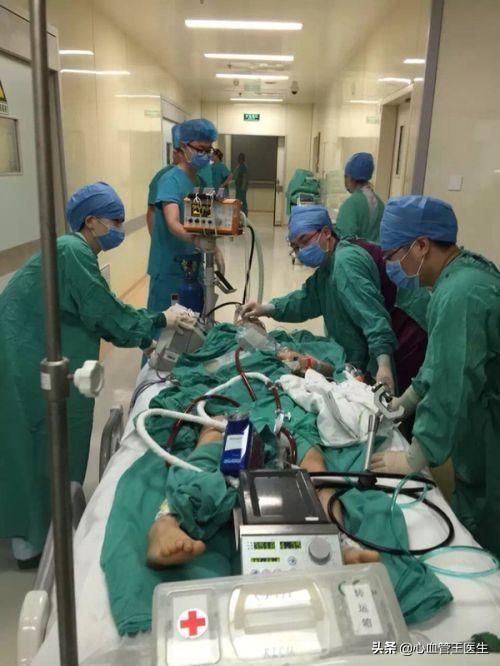
These 5 patients, have one common feature, which is hypertension. It can even be said that hypertension is the most fundamental cause of these 5 patients. These people are not too old, they are all middle-aged, but now they are all facing death.
Of the five of them, some did not notice high blood pressure at all, and some did not try to control it even when they found it; the reason is simple, because they did not feel unwell, so they would not think of taking a blood pressure measurement. Even if someone knows that his blood pressure is high, he is unwilling to take medication because most people think that they are not sick if they are not uncomfortable.
High blood pressure, not to mention other people can not see, even if they have high blood pressure, most people can not feel. According to statistics, there are 300 million hypertensive people in China, of which only 51% know that their blood pressure is high; the other nearly half of the people do not know that their blood pressure is high, why?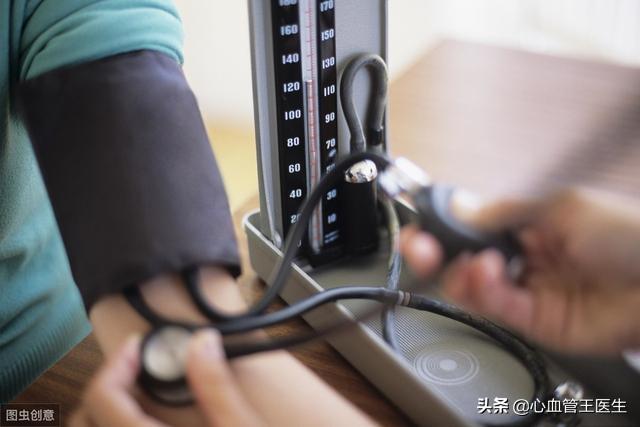
The reason for this is simply because most people with high blood pressure, don't show any signs at all.
One, and certainly a small number of people, have some manifestations of high blood pressure when it occurs:
1. Dizziness and headache
Dizziness is the most common manifestation of high blood pressure, patients may have persistent dull discomfort in the head, seriously affecting work and study thinking; or persistent dull pain or throbbing swelling pain, or even explosive-like sharp pain or throbbing pain in the temples and back of the head. These people usually do not delay, because dizziness is the first thing that comes to mind is hypertension, so if they have high blood pressure and have dizziness, they will definitely be able to detect high blood pressure in the first place.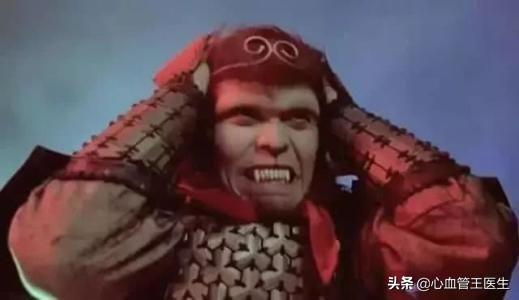
2. Irritability, palpitations, insomnia, memory loss
A part of high blood pressure people are more impatient, sensitive, easily agitated; palpitations, insomnia is more common, wake up early, sleep is not real, nightmares, easy to wake up; attention is easily distracted, the recent memory loss when. With these uncomfortable times, must first measure a blood pressure to see if it is already high blood pressure.
3, Bleeding
Nosebleeds are common, and according to statistics, about 80% of patients with massive nosebleeds suffer from hypertension. Followed by conjunctival hemorrhage, fundus hemorrhage, and even cerebral hemorrhage, etc. Of course, if it develops into cerebral hemorrhage, it can be said that it can't be called a manifestation of high blood pressure, and that it has already appeared, a serious complication.
Therefore, the most common manifestations of hypertension are dizziness and headache, irritability, palpitations, insomnia, memory loss, nosebleeds and other conditions.
However, as I said above, most hypertensive people do not manifest, this is because there is no manifestation, it is delayed, and eventually myocardial infarction, heart failure, cerebral hemorrhage, cerebral infarction, renal failure, and other malignant complications, hospitalized to rescue, only to find out that the original hypertension, it turns out to be hypertension is the root cause of the disease.
Therefore, to determine whether we have high blood pressure or not, and to determine what our blood pressure is, we simply cannot rely on feeling; feeling is very inaccurate. We have to measure it to know whether we have high blood pressure or not.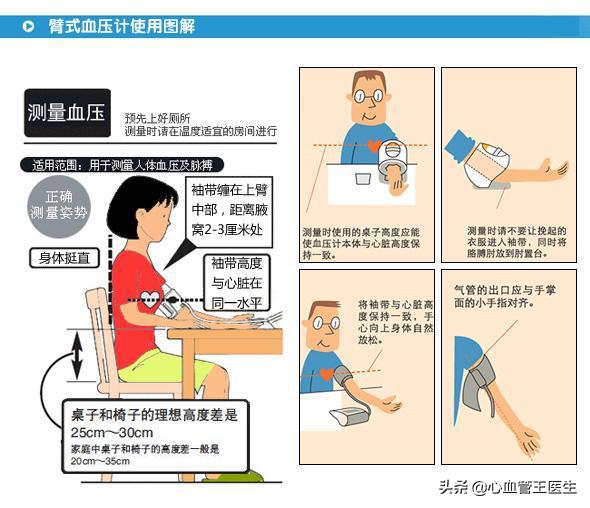
It can even be a good thing for people with high blood pressure who have the above mentioned manifestations, because there are manifestations that can be detected in time; and not delayed, not life-threatening, before realizing that they have high blood pressure, when it is too late.
Hypertension has typical symptoms are not many, many high blood pressure are no performance, and even blood pressure as high as 200mmHg or more, do not measure do not know, a measure of shock. As long as it is an adult, should be at least every six months to measure blood pressure; if obesity, smoking, alcoholism, do not exercise, eat salt heavy, have a family history of high blood fat, diabetes, cardiovascular and cerebral vascular disease and so on any of them, must be at least 1-3 months to measure a blood pressure.
In fact, it is not too much to suggest that all people should measure their blood pressure. Think about it: 1 in 4 people has high blood pressure, and you can't rely on your senses, so don't you just have to measure your blood pressure.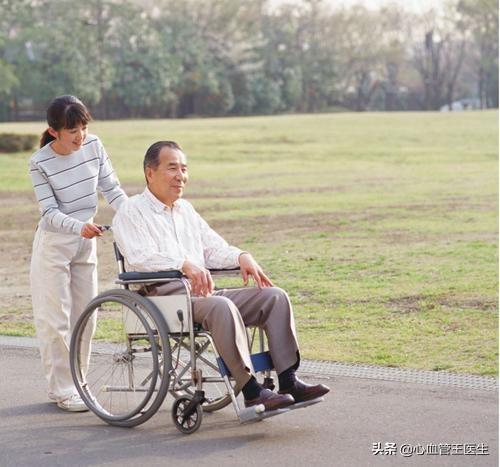
What's more, it takes only a few minutes to measure a blood pressure, a very simple thing. Why do we have to wait until we have a heart attack, heart failure, cerebral hemorrhage, cerebral infarction, renal failure and other malignant complications before we are found to have high blood pressure?
There are plenty of antihypertensive pills! But regret pills are not available!
Hypertension as the most common chronic disease nowadays, the incidence of hypertension is increasing year by year, and the incidence group is also gradually younger, 5 years ago the data of hypertension incidence has been 27.9%, equivalent to every four-member family has a hypertensive patient, and now this data may be higher.
Many people find out that high blood pressure is caused by unexplained dizziness and headaches, and then they seek medical attention before realizing that it is caused by high blood pressure. This is mainly because high blood pressure leads to insufficient blood supply to the brain, so it produces the symptoms of headache and dizziness. This is the first symptom of many hypertensive patients, and it is also a symptom that is easier to pay attention to. It also tends to be accompanied by episodes of tinnitus and nausea, which are more common symptoms of high blood pressure.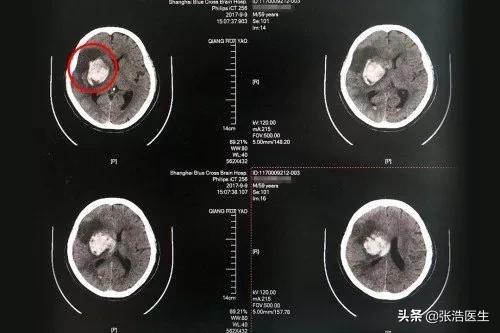
Above is a CT image of a hypertensive patient presenting with a cerebral hemorrhage
Hypertension is a vascular disease, so with the aggravation of hypertension, it will directly damage the heart and kidneys, and there will be symptoms of heart damage such as chest tightness, dyspnea, palpitation, numbness of the upper limbs and other symptoms, as well as the manifestations of kidney damage such as frequent nocturnal urination and swelling of the lower limbs. At the same time, the incidence of heart attack and cerebral infarction will also increase.
So the symptoms of high blood pressure are headache, dizziness, tinnitus, chest tightness and many other symptoms, but these symptoms mostly belong to the patient's self-experience and feeling, ordinary people through these symptoms is difficult to judge is high blood pressure, so as long as they do not say, it is very difficult for people around to see.
For the judgment of high blood pressure, symptoms are on the one hand, is an auxiliary judgment, more important or blood pressure measurement, as long as the measurement of blood pressure systolic blood pressure is higher than 140mmhg, or diastolic blood pressure is higher than 90hhmg, then you can judge high blood pressure. Because of these symptoms caused by high blood pressure, not everyone will appear, once met an old lady high pressure 187mmhg, already belongs to the high risk, but the patient himself and headache, just a little bit of dizziness.
Hypertension is one of the most common chronic diseases today, and in recent years we have become more familiar with it, mainly because the number of hypertensive patients around us has become larger. The latest cardiovascular report shows that the number of hypertensive patients in China has reached 245 million, which means that there is one hypertensive patient in every six people.
What are the signs of high blood pressure? Can others see it?
Hypertension is a lifelong disease that is still incurable because of its complex causes. This means that patients with hypertension need to be treated with medication for the rest of their lives. In the early stages of hypertension, most patients do not have any obvious symptoms, and patients only realize that their blood pressure is abnormal when they measure it. Because of this, many patients don't take hypertension seriously, don't take medication and don't care, and always think that it's okay if they don't feel sick.
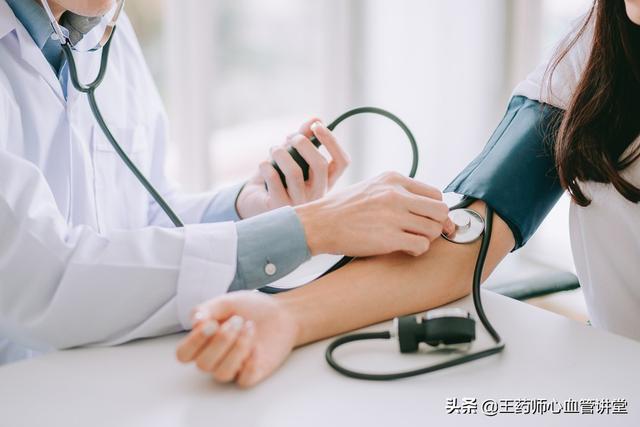
Unbeknownst to the patient, high blood pressure is harmful to patients in the subtle development. Even if there seems to be no sign, but the harm has long been quietly started, because high blood pressure and induced by the complications of the patient is fatal, once the occurrence of the patient's life will be jeopardized, and at this time and then think of taking medication has been too late. For example, cerebral hemorrhage, acute infarction and other critical illnesses are related to high blood pressure.
So, what are the signs of high blood pressure? When it comes to the manifestations of high blood pressure, it may be very difficult to be detected by those around us. As mentioned above, there are actually a lot of hypertensive patients around us, but if we are not told by the patients, it is hard to find out by our own observation alone. Perhaps we can only find out through the medicines that hypertensive patients take. As mentioned above, hypertension patients usually have no obvious symptoms in the early stage, even the patients themselves do not feel it, not to mention outsiders.
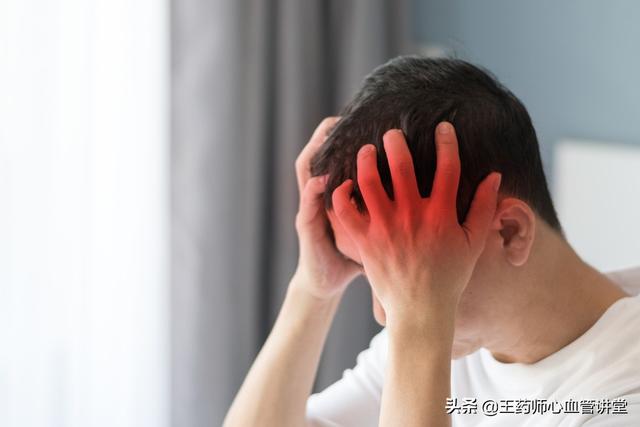
Of course, some patients may have occasional headaches and dizziness, but because the symptoms are atypical and are short-lived episodes, they are also easy to overlook. Still, it is true that the absence of symptoms does not mean that there is no harm. It is possible that by the time a person with high blood pressure develops noticeable symptoms, it is a sign that the body has been damaged beyond repair by high blood pressure. The body is overwhelmed by the damage caused by high blood pressure. Symptoms are the body's warning signals to people with high blood pressure, and may be a sign of complications.
For example, hypertensive patients with transient cerebral ischemia symptoms, dizziness, headache, unilateral limb numbness and weakness, holding objects falling, yawning, fatigue, drowsiness, transient blurred vision, etc., these symptoms predict the occurrence of cerebral stroke; myocardial ischemia symptoms, chest pain, chest tightness, etc., predict coronary artery disease or even the occurrence of heart attack. In short, by the time the people around you are able to tell that the person is hypertensive, the person may have more than just high blood pressure.
I am Pharmacist Wang, insisting on spreading the knowledge of cardiovascular and cerebrovascular diseases with simple and easy-to-understand words, and dedicating my own small efforts for a healthy China. If you think my answer is helpful to you, please leave a like! In addition, if you still have questions related to the manifestation of hypertension, welcome to leave a message, we discuss together!
I'm Dr. Shadow. What are the signs of high blood pressure? Can others see it? Some people do not show any signs of high blood pressure, others cannot see it and they may not feel it themselves. Moderate to severe hypertension may present with dizziness, headache, palpitations, panic attacks, vomiting and memory loss. Hypertension is diagnosed by measuring blood pressure with systolic blood pressure ≥ 140 mm/Hg and diastolic blood pressure ≥ 90 mm/Hg.
How is hypertension diagnosed?
Hypertension is categorized into primary hypertension and secondary hypertension. Primary hypertension is mostly seen in middle-aged and old people and is controlled with medication. Secondary hypertension is mostly seen in young people and can be improved after the cause is removed.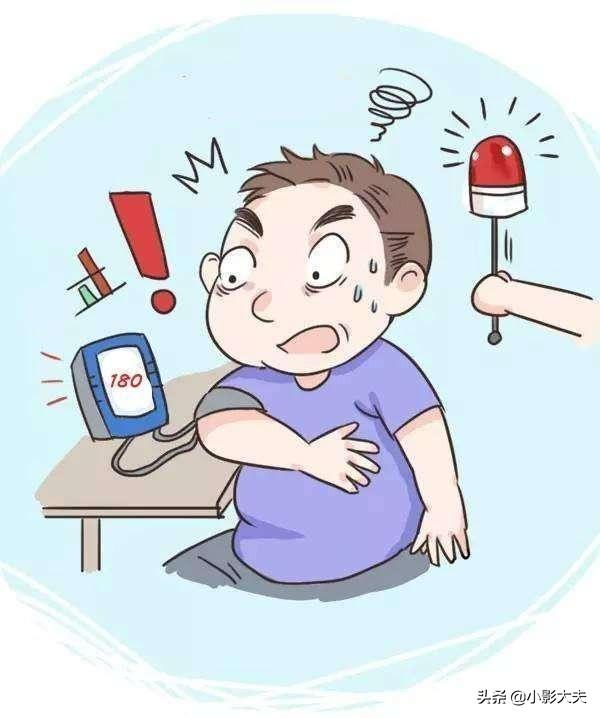
A portion of high blood pressure has no symptoms and even they do not feel that they have high blood pressure. Many people only know they have high blood pressure because they casually take a blood pressure measurement. To measure blood pressure, always do it in a quiet state, rest for 15 minutes, measure blood pressure twice on non-same day, systolic blood pressure ≥ 140mm/Hg, diastolic blood pressure ≥ 90mm/Hg can be diagnosed as hypertension.
What are the possible symptoms of high blood pressure?
1. Dizziness and headache, vomiting
Dizziness and headache are the most common symptoms. The body's blood pressure is like the pressure in the blood vessels, and if the blood pressure inside the skull is too high, dizziness and headache, partly accompanied by vomiting, will occur. If left untreated, brain hemorrhage may occur. Some people may not know they have high blood pressure, but it is only when they have a brain hemorrhage that they come to the doctor and find out they have high blood pressure.
2. Palpitation, chest tightness, weakness
It can manifest itself in a way that resembles heart disease and can be mistaken for a heart problem. High blood pressure can also lead to heart disease, called hypertensive heart disease. The pressure in the peripheral vasculature is so high that it is harder for the heart to function to pump out the blood, and the heart has to use more force to do so, resulting in cardiac hypertrophy and heart failure over time.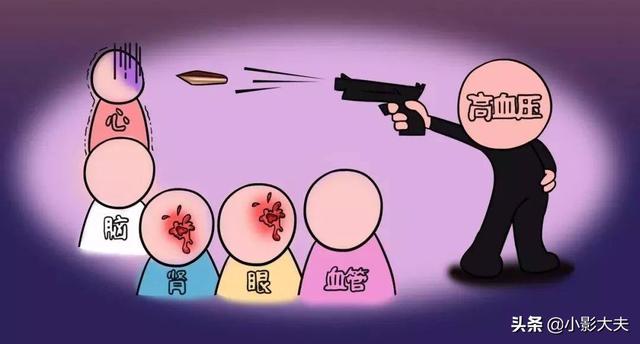
3. Accompanying other diseases
High blood pressure is not scary, but is accompanied by vascular disease of the whole body organs. For example, cerebral infarction, cerebral hemorrhage, hypertensive nephropathy, aneurysm, arterial entrapment, heart disease and so on. Any one of these complications can be fatal. There are more than 30 years of age because of high blood pressure arterial entrapment tear, not even time to rescue.
Elderly people who suffer from chronic dizziness and headaches should have their blood pressure measured. If the blood pressure is high, it must be controlled by medication, and must not arbitrarily stop taking medication. Otherwise, cerebral hemorrhage and other cardiovascular and cerebrovascular diseases are likely to occur. In daily life, pay attention to low-salt, low-fat diet, appropriate exercise.
I'm Dr. Little Shadow, so follow me if you want to learn more about medicine.
Hi, I'm glad to be able to answer your question and I hope my answer is helpful!
Hypertensive patients are now more and more, with the widespread problem of population aging, then more and more hypertensive people, in recent years, but also showing a trend of rejuvenation. In the future, the "three highs", high blood sugar, high blood pressure, high blood fat in addition to a small 4 high, "high uric acid" these four chronic diseases will be very common, it is possible that around 3 people, there is a person who is sick!
Well, prehypertension also has symptoms, the average person's blood pressure over 140/90 will show dizziness, headache, weakness, red face, nausea, numbness of the limbs and so on. Each person's symptom manifestation is different. Some people are strong some are weak.
But there are some people who don't have any symptoms. My neighborhood a moncler outlet online, high blood pressure for more than 10 years, no symptoms, never take drugs, late last year said the brain door jumping powerful, temples there pain. A check of blood pressure, the upper pressure of 190, the physician was shocked, rushed to hospitalization. Said that if the blood vessels ruptured, the consequences are unimaginable.
As a result, there is a slow process of adaptation in some people, and it is likely that the blood pressure is very high without any symptoms. This part of the population should be more careful, once the blood vessel ruptures, it will be brain hemorrhage, stroke, and life-threatening.
Hypertension is a chronic disease that looks like a normal person and is usually not visible to others. But chronic disease also need to be well controlled, control the occurrence of complications. Usually do not eat too salty, diet should be controlled, but also to take medication on time, appropriate exercise, a stable mind.
Finally, good health!
Hypertension is a common chronic disease. There are about 300 million hypertensive patients in China, which shows the large number of people suffering from hypertension. However, hypertension is not always symptomatic, many hypertension are asymptomatic, are found during physical examination or treatment of other diseases, so this is one of the reasons why the awareness rate of hypertension patients in China is low. So what are the symptoms of symptomatic hypertension? Patients with high blood pressure, other able to see it?
I. What are the manifestations of high blood pressure?
A portion of high blood pressure is asymptomatic, which means that a lot of high blood pressure is symptomatic. So what are the symptoms that people with high blood pressure experience? The common manifestations of hypertensive patients are mainly symptoms such as dizziness, headache, head swelling, eye swelling, etc. Of course, there are also hypertensive patients who will manifest facial discomfort, vertigo, etc., but these manifestations are relatively rare. Some hypertensive patients will come to the clinic with complications related to hypertension, such as heart disease, cerebral infarction, heart failure and other related manifestations, which need to be alerted.
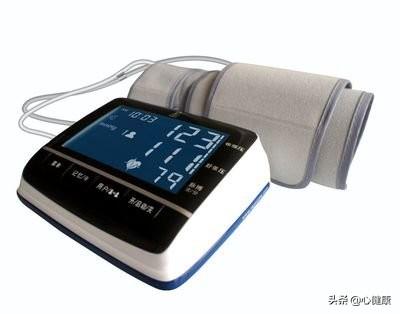
Second, can other people see that there is high blood pressure?
Does the questioner mean that others can observe high blood pressure by facial or other signs without measuring blood pressure? The answer is no. There are no typical signs or external manifestations of hypertension, except when hypertension leads to a specific disease, and then some of the manifestations of the related disease will be shown. For example, heart failure, cerebral infarction, etc. However, if there are no related complications, it is not possible to tell that the patient has high blood pressure by the external signs, and even if it is possible to tell, it is necessary to take blood measurements to further confirm the diagnosis.
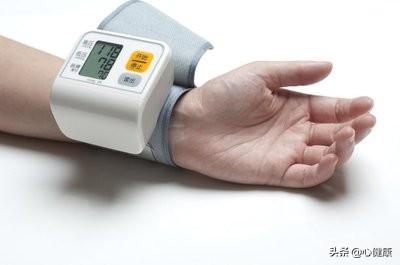
III. How is hypertension diagnosed?
Hypertension is most easily diagnosed when the patient's blood pressure is accurately measured at rest and the systolic blood pressure is greater than or equal to 140 mmhg and/or the diastolic blood pressure is greater than or equal to 90 mmhg. Therefore, the diagnosis of hypertension only requires the correct measurement of the patient's blood pressure.

High blood pressure itself is not terrible, the terrible thing is that the complications associated with hypertension patients, if you can not effectively and timely control of blood pressure, then the complications of hypertension patients once the emergence, I am afraid that it will be too late to regret! See what I mean? Follow us and have updated science pushed to you every day!
Hypertension is one of the most common cardiovascular diseases and the main reason for the increasing number of patients with coronary heart disease, myocardial infarction, cerebral infarction and cerebral hemorrhage in recent years.The only way for hypertensive patients to prevent complications such as heart attack and cerebral infarction is to control the elevated blood pressure as early as possible.That's why it's especially important to recognize the signs and symptoms of high blood pressure in a timely manner!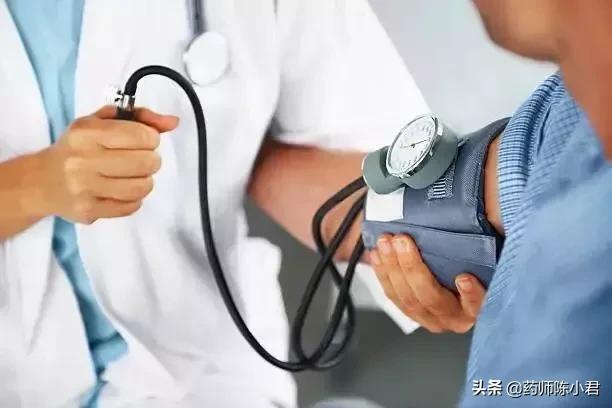
Common symptoms of high blood pressure include:
1, dizziness:
The most common symptom of hypertension is dizziness, some of which are transient, often appearing when suddenly squatting or standing up, and some of which are persistent, not relieved for several days in a row. In severe cases, it may even affect life and work. When hypertensive crisis occurs, symptoms similar to those of Meniere's syndrome (dizziness, a sense of heavenly spinning, nausea and vomiting, tinnitus, hearing loss) may appear.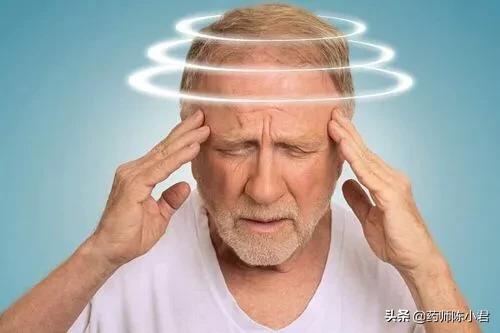
2, headaches:
Headaches are also a common symptom of high blood pressure. It often occurs in the morning when waking up, is relieved after breakfast, and is aggravated by exercise or exertion. The headache is often in the back of the head or both temples, and is throbbing, mostly persistent dull pain or throbbing swelling pain, or even explosive-like pain.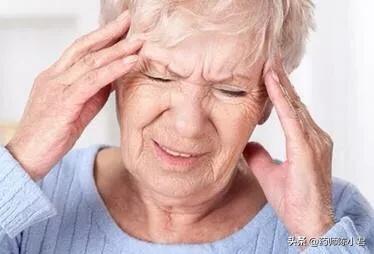
3, irritability, palpitations, insomnia, memory loss
Elevated blood pressure can lead to cerebral cortex dysfunction and vegetative nerve dysfunction. Therefore, many patients with hypertension are easily agitated, impatient, palpitation or insomnia. Prolonged insomnia or difficulty in sleeping will lead to poor concentration during the day and memory loss.
4, numbness of the limbs:
There are some hypertensive patients, often have numbness of fingers and neck and back muscle pain and other symptoms, but sometimes misdiagnosed as neuritis, rheumatic pain. If the numbness and inflexibility of the fingers, after treatment still did not improve, or always fixed a part of the numbness and discomfort, to pay attention to avoid the occurrence of stroke and other acute cerebrovascular accidents.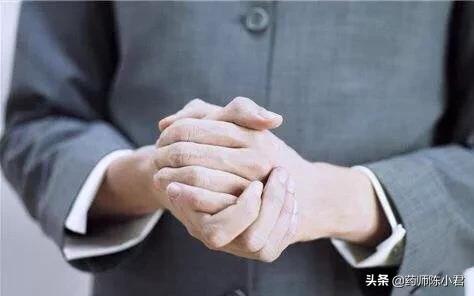
5, bleeding from ruptured blood vessels:
This condition is relatively rare. Because long-term high blood pressure can make blood vessels lose elasticity and increase brittleness, leading to blood rupture and bleeding. Among them, nasal mucosa, conjunctiva, fundus and cerebral vascular hemorrhage are more common.
However, it is important to note that about 5% of hypertensive patients do not have obvious symptoms, and many people do not know they have hypertension until they have had a cardiovascular accident or have had their blood pressure elevated for a long time, causing complications such as damage to blood vessels and organs.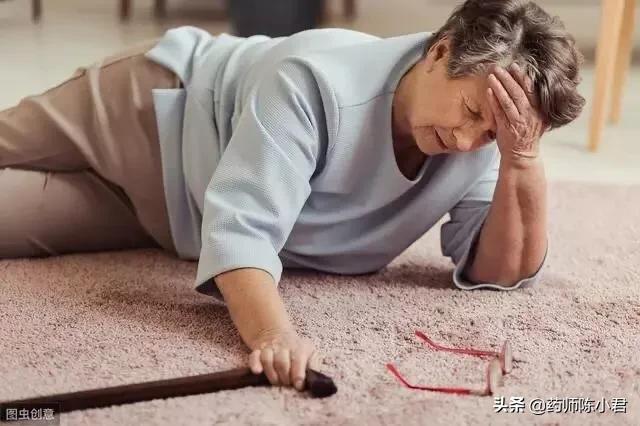 Summarize: If dizziness, headache or other symptoms mentioned above suddenly appear, you should measure your blood pressure to determine whether you have hypertension, or middle-aged and elderly people over 50 years old should monitor their blood pressure on a regular basis, because the earlier hypertension is detected and treated, the better the control of blood pressure, and the more complications can be avoided.
Summarize: If dizziness, headache or other symptoms mentioned above suddenly appear, you should measure your blood pressure to determine whether you have hypertension, or middle-aged and elderly people over 50 years old should monitor their blood pressure on a regular basis, because the earlier hypertension is detected and treated, the better the control of blood pressure, and the more complications can be avoided.
Patients with high blood pressure look no different from healthy people, and some patients do not even feel that they have any symptoms, in fact, this phenomenon is understandable and relatively normal, because high blood pressure most of the time is not particularly obvious symptoms.
What are the signs of high blood pressure?
1. Headache
One of the most common clinical symptoms of hypertension is headache. Some patients think that if the headache is not serious then the blood pressure must not be high, which is actually a wrong understanding. If the headache persists, some risky events are likely to occur, so it is necessary to be alert to hypertension whenever headache occurs in middle-aged and elderly patients.
2. Fatigue
For people with high blood pressure, fatigue is not only a symptom, but also one of the signs of a compromised cardiovascular system. If you often feel tired and sluggish, and your mind is not clear, you should suspect that it is caused by high blood pressure.
3. Palpitations and tinnitus
High blood pressure can lead to insufficient blood supply to the heart, so symptoms such as palpitations and shortness of breath can occur. Secondly, tinnitus is also one of the possible symptoms of high blood pressure, and tinnitus caused by high blood pressure usually lasts for a longer period of time.
4. Blurred vision
High blood pressure may cause some lesions in the fundus of the eye, leading to hemorrhages or fundus optic papillae edema, which may affect vision and blurred vision.

In addition to that, hypertension may also have symptoms such as memory loss, lack of concentration, numbness in the limbs, and increased nocturia. If long-term hypertension is not taken seriously, it may also lead to complications such as coronary heart disease and kidney failure. Therefore, if some of the manifestations of high blood pressure, it is necessary to go to the hospital to do a checkup to see if it is high blood pressure, if it is, it must be timely treatment under the guidance of the doctor.
High blood pressure is known as the "silent killer" is not without reason, most people with high blood pressure have no symptoms, many are only found in the examination of blood pressure abnormalities, they do not know that they are suffering from high blood pressure, other people can not see it, so many people think that even if they have high blood pressure, but do not feel uncomfortable, you can not So many people think that even if they have high blood pressure, but do not feel uncomfortable, they can not take medication, can be left alone.
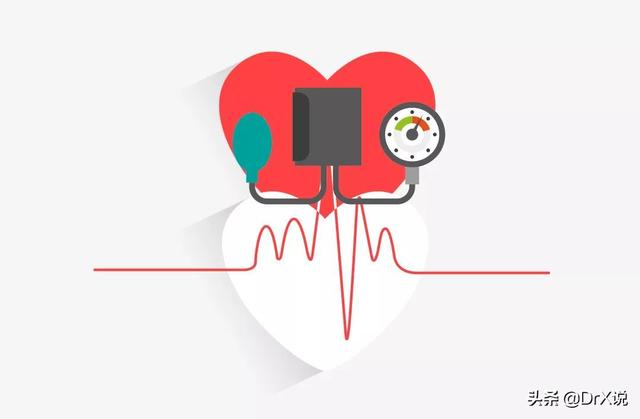
However, many patients develop the disease without any symptoms. Long-term higher-than-normal pressure on the walls of blood vessels can lead to coronary heart disease, stroke, heart failure and other diseases.
But there are some people with high blood pressure who have some typical symptoms:
1. Dizziness and headaches:Dizziness and headache is the most common symptom of high blood pressure, which is caused by the abnormal elevation of blood pressure after the expansion of blood vessels obviously, sometimes it is suddenly get up or squatting dizziness, heavenly rotation, and sometimes it will be contacted for several days dizziness can not be relieved; headache is often the back of the head or the temple area, the performance of persistent dull pain or throbbing swelling pain, and even have a blowing-like pain or the temple and the back of the head jumping pain.
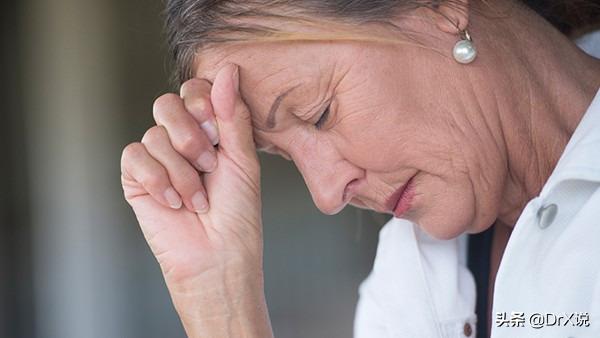
2. Numbness of the limbs:When blood pressure continues to rise, the patient's local blood circulation will be impeded, and numbness of the limbs may occur, and the numbness of the toes and fingers will be very obvious.
3. Insomnia:In the case of elevated blood pressure, the patient's cerebral blood vessels and neural tissues may be damaged may suffer from sleep disorders.
4. Irritability:Some hypertensive patients are more emotionally unstable and tend to be impatient, agitated and sensitive when things go wrong.
Hypertension is a "lifestyle disease" and many lifestyle habits can contribute to its development, for example:
1. Excessive drinking and smoking:Drinking large amounts of alcohol will stimulate the sympathetic nerves, nerve excitation will lead to increased blood pressure; smoking has a certain effect on lipid metabolism, thus easily induced hypertension.
2. High-sodium, low-potassium diet:High-sodium and low-potassium diets are important pathogenic factors in our hypertensive population.
3. Overweight and obesity:Overweight and obesity are important risk factors for the development of hypertension, and due to the impaired metabolism of cholesterol and other substances in the body, it can lead to a risk of hypertension that is 1.16 to 1.28 times that of the normal population.
4. Chronic stress:When a person is in a state of nervousness, irritability, panic, anxiety, etc., the sympathetic nerves in the body are excited, which can lead to an increase in blood pressure.
Of course other risk factors include age, in our country the incidence of hypertension increases with age, a family history of hypertension, diabetes, etc. can induce hypertension.
▼ Follow me into the life of a clinician!
-Dr.X-
An M.D., surgeon, and father of three.
Author of Learning to See
Bringing you health and parenting tips with attitude and warmth.
Follow me for a little more health every day
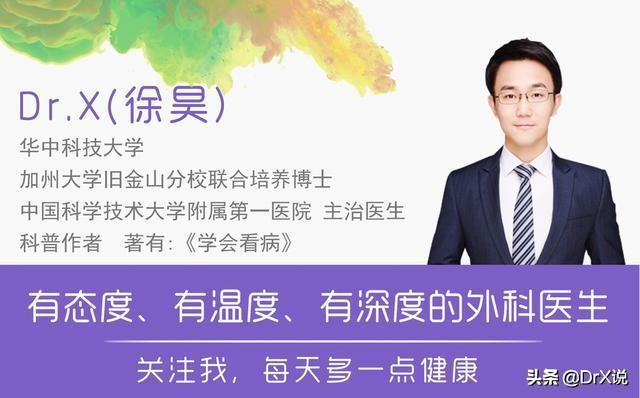
High blood pressure isImportant risk factors for cardiovascular diseaseIt has been called an "invisible killer" affecting human health.
According to statistics: the prevalence of adult hypertension in China is 25.2%, with a measured number of 270 million.
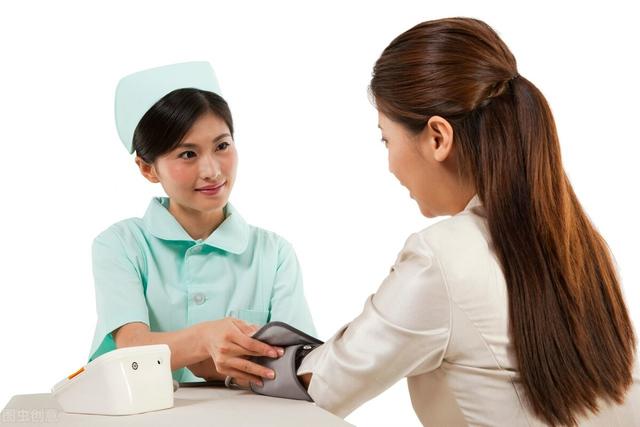
High blood pressure at a young age ......
In recent months, 34-year-old Xiao Liu always feel dizzy, but the symptoms are not serious, there is no other discomfort, Xiao Liu has not been taken seriously.
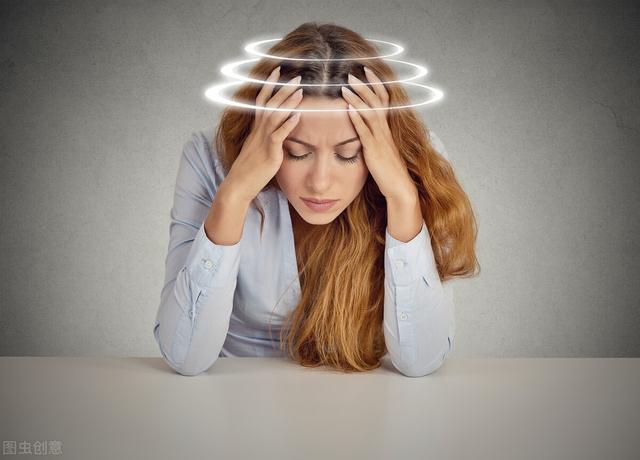
Until the past few days, he began to experience headaches, which caused him to have some overwhelm, and fearing that he was really suffering from a serious illness, he immediately went to the hospital to receive a checkup.
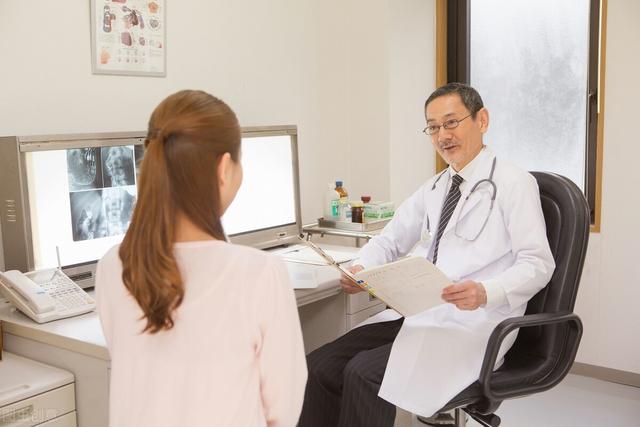
The doctor told Liu he was suffering from high blood pressure.Vertigo and headaches are both symptoms of high blood pressureThe condition is not serious and can be basically cured through dietary regimen and scientific medication.
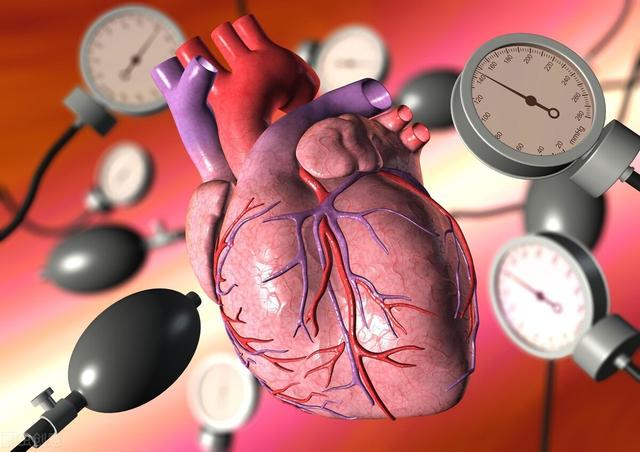
What are the early signs of hypertension?
(1) Snoring
Snorers who developHeadaches, dizziness and neck tightnessSymptoms such as these require immediate blood pressure measurement.
If an obese person manifests snoring, he or she tends to suffer from high blood pressure, because snoring implies a strained heart, which can serve as aWarning Signs of High Blood Pressure。

(2) Headache
Headaches are characterized byThrobbing and throbbing headachesThe headache occurs in the back of the head, mostly during the day, and some patients will have a headache in the morning, which is relieved by washing the face. A feeling of mental fatigue, heaviness in the head, and a feeling of pressure are present.
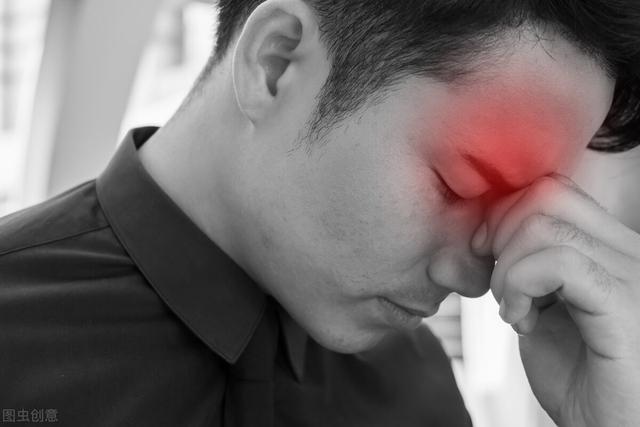
(3) Dizziness
There are many causes of dizziness, such as low blood sugar, sleep deprivation and low blood pressure, butDizziness in hypertension is characterized by insomnia, tinnitus, heaviness of head and irritability. Its differentiation from dizziness caused by other diseases is high and easy to detect.
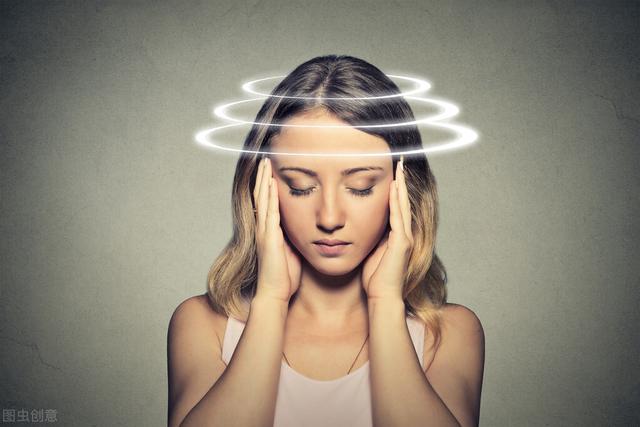
(4) Limb paraplegia
Numbness of the limbs and stiffness of the hands and feet are the main signs of high blood pressure. If the limbs have an anthropomorphic sensation, it means that the vasodilatation function is in a state of disorder or arteriosclerosis has occurred, making the blood supply to the limbs obviously insufficient.
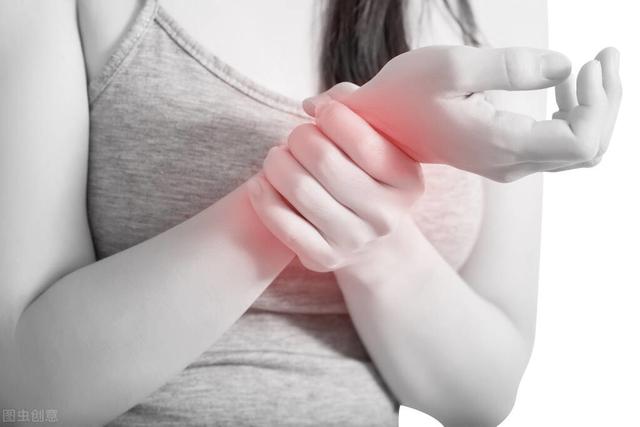
suggestionPeople over 30 years of age should have their blood pressure checked every 2 months.。
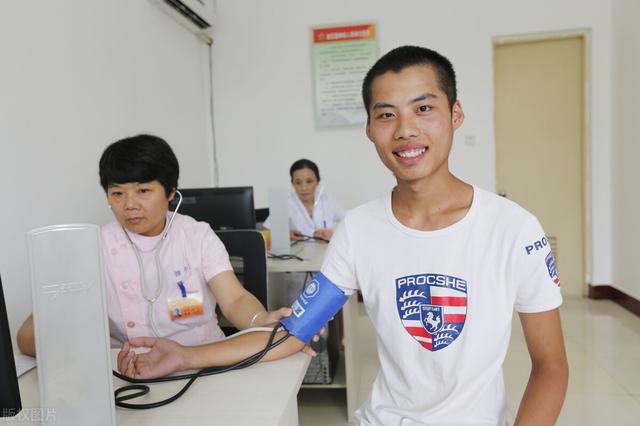
(5) Chest tightness
Chest tightness may be self-perceived, as it tends to manifest itself in relatively closed environments or during emotional stress.
Its also an early sign of hypertension, if the symptoms of chest tightness appear during the period of cardiac compensation, it means that the patient is accompanied by hypertensive disease, at this time, undergoes electrocardiography with no abnormal manifestations, but the blood pressure is elevated.
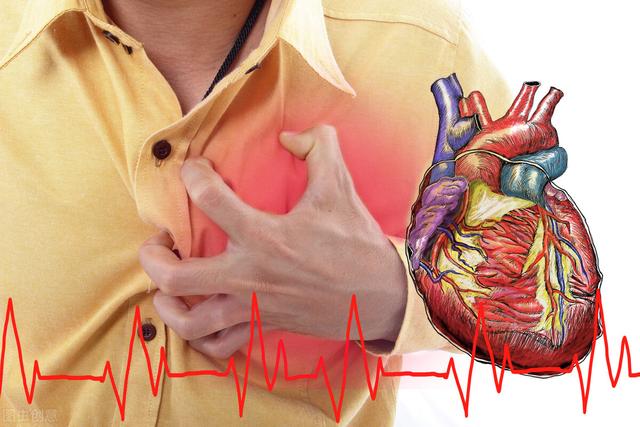
(6) Finger and muscle discomfort
Numbness of fingers or toes, ants in the skinIt is also a sign of high blood pressure, which can be suffered from muscle aches, tension, or neck and back pain.
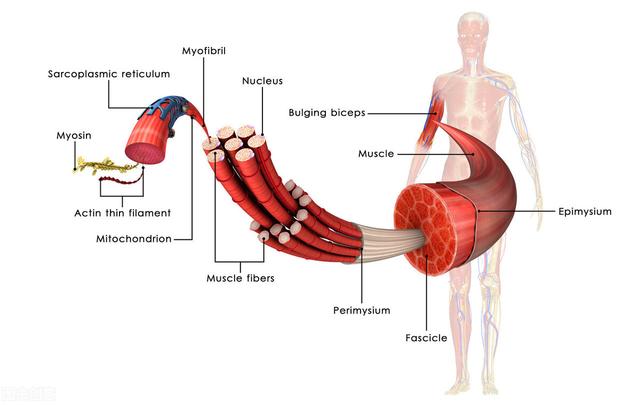
(7) Palpitations
In the early stages of hypertension, there is a significant imbalance in neuromodulation and the sympathetic nerves are in a state of extreme excitement, which can lead to an increase in the heart's original contractile function and an increase in the heart rate, which in turn manifests itself in the form of palpitations.
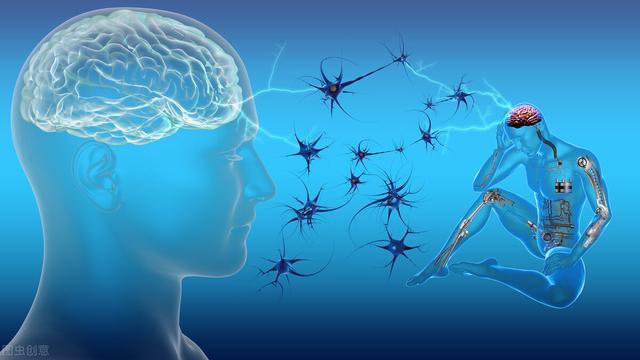
The dangers of uncontrolled high blood pressure
(1) Heart failure
Hypertension is extremely harmful to the heart, and people with high blood pressureProlonged overpressurized working condition with high loadin which, in turn, the patient's heart becomes overworked, which then leads to heart failure.
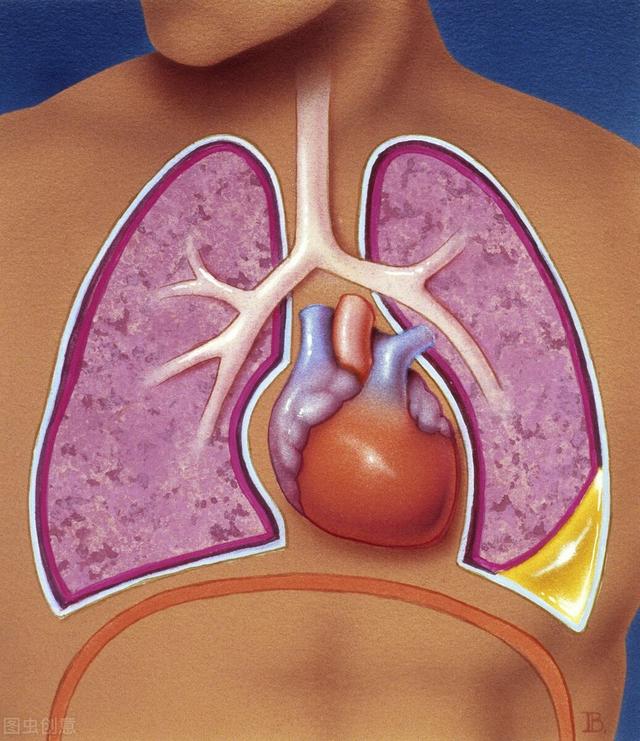
(2) Blood vessels
The blood pressure of hypertensive patients is in a state of prolonged and abnormal elevation, and the blood vessels, in order to avoid their own rupture, make themselves thicker, which results in the thickening of the inner wall of the blood vessels, which in turn leads to a smaller internal diameter of the blood vessels, and finally results in theNarrowing of blood vessels。
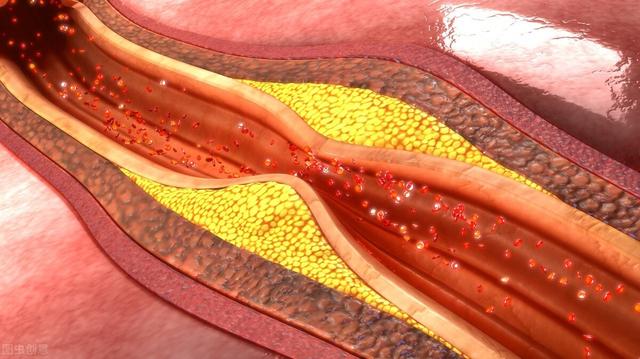
Narrowing of blood vessels leads to a further increase in the patient's blood pressure. A further increase in blood pressure leads to an increase in the pressure on the inner walls of the patient's blood vessels, which in turn leads to damage to the inner walls, leading to atherosclerosis and thrombosis.
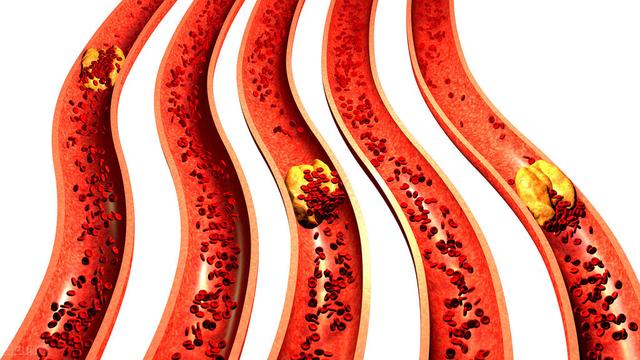
If a blood clot forms at the coronary arteries of the heart, it can lead to myocardial infarction, and in severe cases, it can even lead to oxygen deprivation in the patient's heart and eventual death.
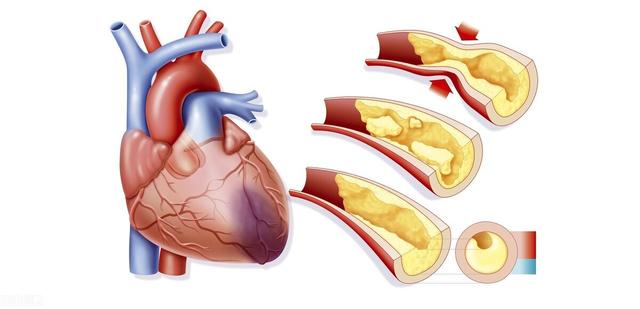
Excessive pressure within the blood vessels can cause them to burst, which in turn can lead to a variety of diseases, for example, cerebral blood vessels burst, the patient will be complicated by cerebral hemorrhage and other conditions.
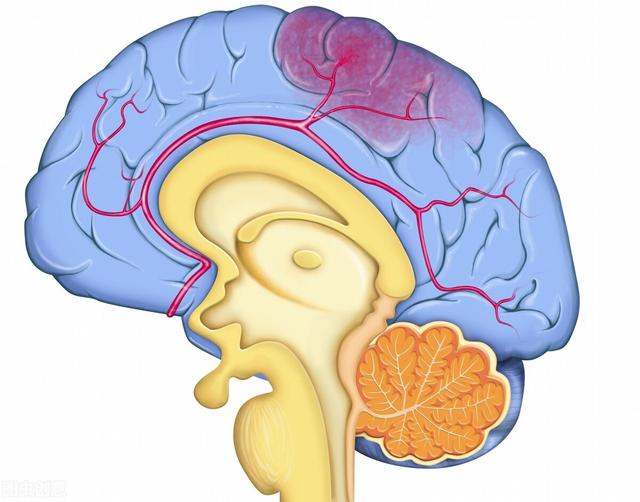
Finally, hypertension is a lifelong condition, andThere are no significant signs of the disease in its early stages.As a result, most hypertensive patients are unaware that they are suffering from hypertension, resulting in their high blood pressure not being effectively controlled, making regular blood pressure checks important.
This question and answer are from the site users, does not represent the position of the site, such as infringement, please contact the administrator to delete.